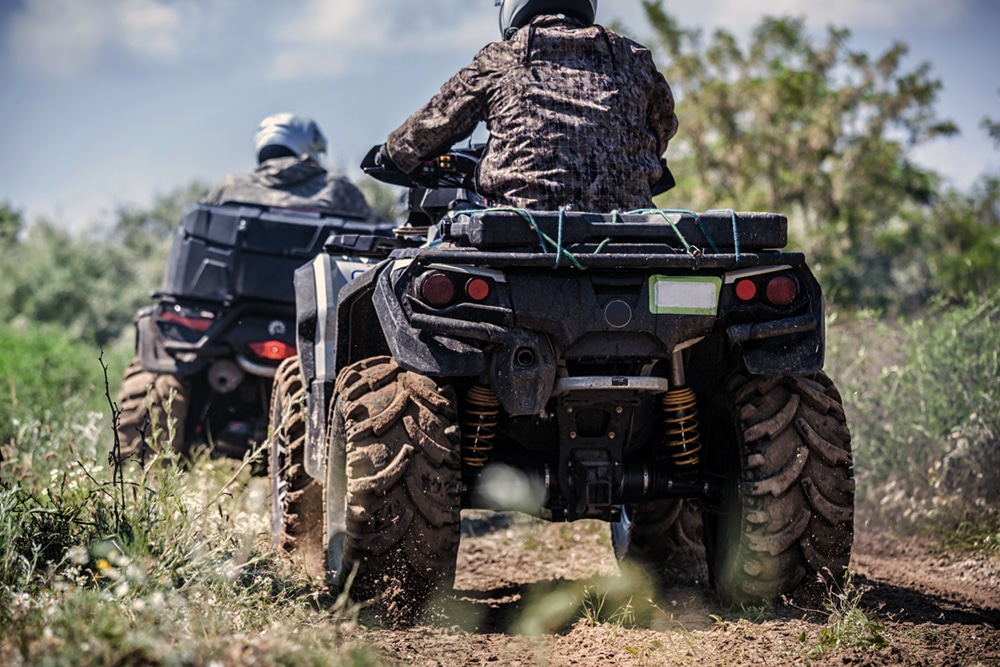Though in most places around the country operating all-terrain vehicles on public roadways is illegal, in some places throughout the beautifully rural state of Michigan this is not the case. However, in response to the more than 100,000 injuries and fatalities related to ATVs that occur every year, including 453 fatalities in Michigan alone since 1982, the U.S. Consumer Product Safety Commission (CPSC) is urging all recreational drivers to avoid the use of all off-road vehicles on paved public roads this season. As part of the official public service announcement released, the (CPSC) even supplied a list of reasons not to partake in this potentially dangerous activity, as well as a list of formal safety tips to help keep drivers and passengers safe.
Reasons to Avoid Paved Public Roads on ATVs
- Unlike typical cars, trucks, and other road vehicles, all-terrain vehicles are designed for off-road conditions only. In the same way you might not take a sedan mudding in fear of getting stuck, the tires, shocks, and other mechanisms on ATVs and other off-road vehicles are not designed to handle the smooth slick surfaces of paved roads.
- Due to the design of all-terrain vehicles, driving on paved roads may make drivers and passengers more susceptible to accidents, including skidding, sliding, and potentially even overturning the vehicle entirely.
- In the wild, all-terrain vehicle drivers may run the risk of colliding with stagnant objects like rocks or trees if not careful enough. However, on paved surfaces, cars, trucks, and other vehicles can be difficult to avoid, especially with everyone traveling at high speeds.
- In most places, driving all-terrain vehicles on paved roads is still illegal, meaning drivers and passengers are at risk of fines and possibly even arrest for failure to comply with local laws.
Safety Tips for Drivers and Riders Operating Off-Road Vehicles
- The most important safety tip of them all is to remember is to never go riding unless you are wearing all the necessary protective gear. Helmets, eye protection, special riding boots, riding gloves, long pants, and a shirt that fully covers you are essential to making sure you are protected both from the elements and from potential accidents – no matter where you’re riding.
- Never overcrowd your vehicle. If you have an all-terrain vehicle with only one seat – only one person should be on that vehicle at a time. The more people you allow to be on an all-terrain vehicle at a time, the greater the risks. Just don’t do it.
- If you are new to riding or you are testing out a new all-terrain vehicle you don’t have much experience with, it never hurts to get a little hands-on training from either someone experienced you trust or a qualified instructor. It’s always better to be safe than sorry, and someone with more experience than you will be able to help you get to know the vehicle a little better, including how to operate it safely.
- For riders under the age of 16, special age-appropriate ATV models that include smaller frames and less torque are available to help get younger riders used to the experience of driving off-road. However, at no point should a child under the age of 16 ever use an adult ATV.
The most important thing to remember this season is to make smart choices when it comes to your recreation. All it ever takes is one accident, one small bump in the road, or one second of poor judgment to cause an accident resulting in permanent consequences. Do the right thing for yourself, and your family, and keep yourall-terrain vehicles off the road!
If you or someone you know has been involved in consumer-related injury and require a professional attorney to assist you in a case, call us at 1.877.732.2491 or complete our free case review form in the sidebar to receive a prompt response from our one of our knowledgeable staff or attorneys.

